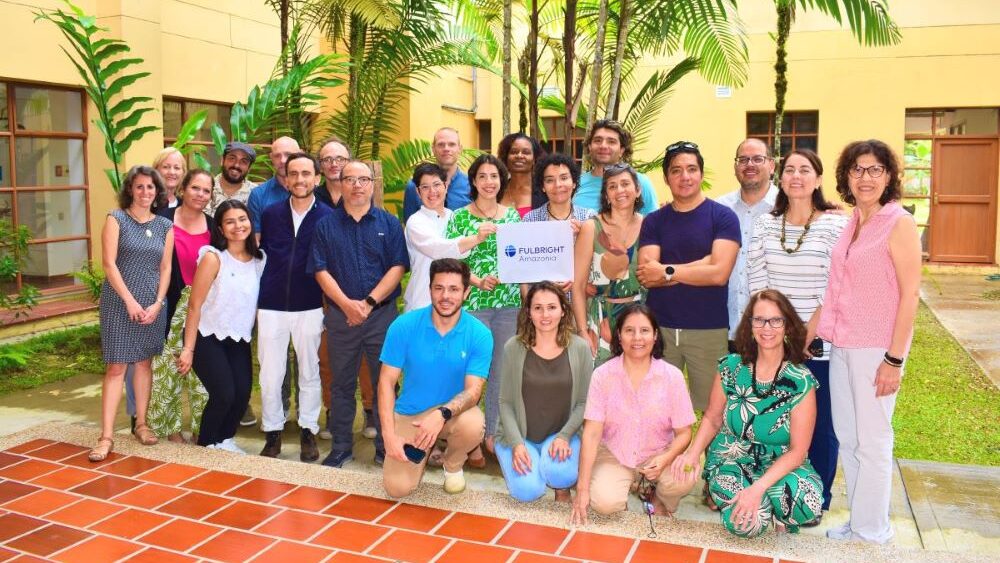
Sixteen Fulbright Amazonia scholars from Brazil, Bolivia, Colombia, Ecuador, Peru, Suriname, Venezuela and the United States convened in Leticia, Colombia in April, 2024 to meet with local Amazonia organizations, report on their research projects, and meet in policy-oriented groups to contribute a stable and thriving Amazon Basin.
Eden Bolivar Crucillo, the executive director of Fulbright Colombia, observed that the scholars’ collaborative projects “will create a significant impact on the conservation of the Amazon basin’s biodiversity, the promotion of innovative approaches that preserve Amazonian social and ecological health and community traditions, and the creation of public policies that aim to protect the unparalleled natural richness of this region.”
Leticia, the capital city of the Department of Amazonas, is well-suited to this kind of cross-border collaboration. It is located on the banks of the Amazon River, at the “triple frontier” with Colombia, Brazil, and Peru. The city is connected by bridges to Tabatinga in Brazil and Santa Rosa in Peru, and it is home to many of the region’s Indigenous peoples, who have their own traditional systems of authority, including for environmental management. The setting supports what co-lead scholar Carlos Valério Aguiar Gomes calls an “inclusive and participative approach” to research, which prioritizes collaboration with local and Indigenous community members and organizations.
The scholars are guided by Gomes, from the Federal University of Pará in Brazil, and another co-lead scholar, Dr. Jeffrey Hoelle, from the University of California, Santa Barbara in the United States. The meeting in Leticia focused on the importance of sharing research and data across the Amazon basin and included a roundtable discussion with Colombian policymakers to hear pan-Amazon perspectives and discuss future research cooperation.
The gathering marked the mid-point of the 18-month Fulbright Amazonia initiative, an international, multi-disciplinary collaboration of scholars investigating topics related to the Amazon Basin. Each scholar presented updates on their own research projects, working across borders with universities and institutions in the United States.
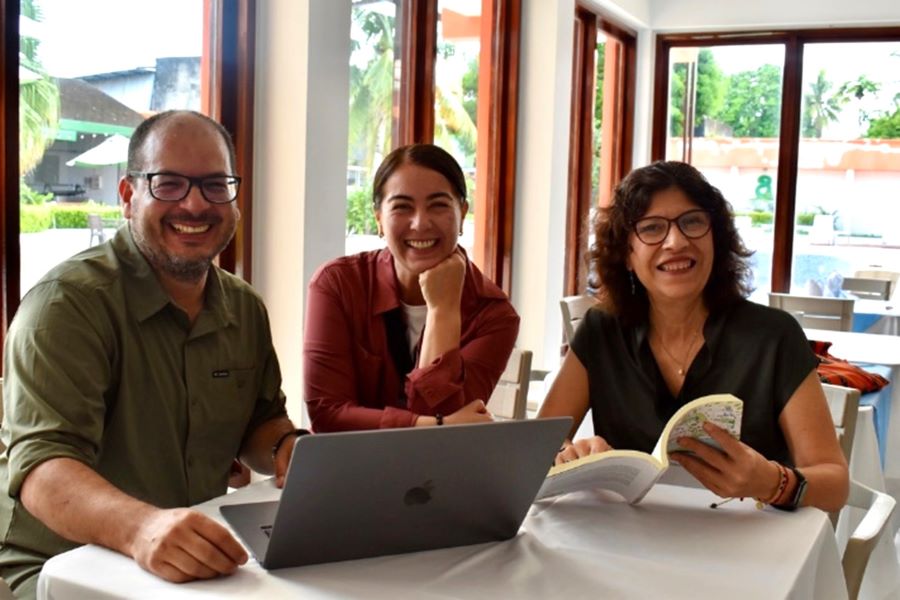
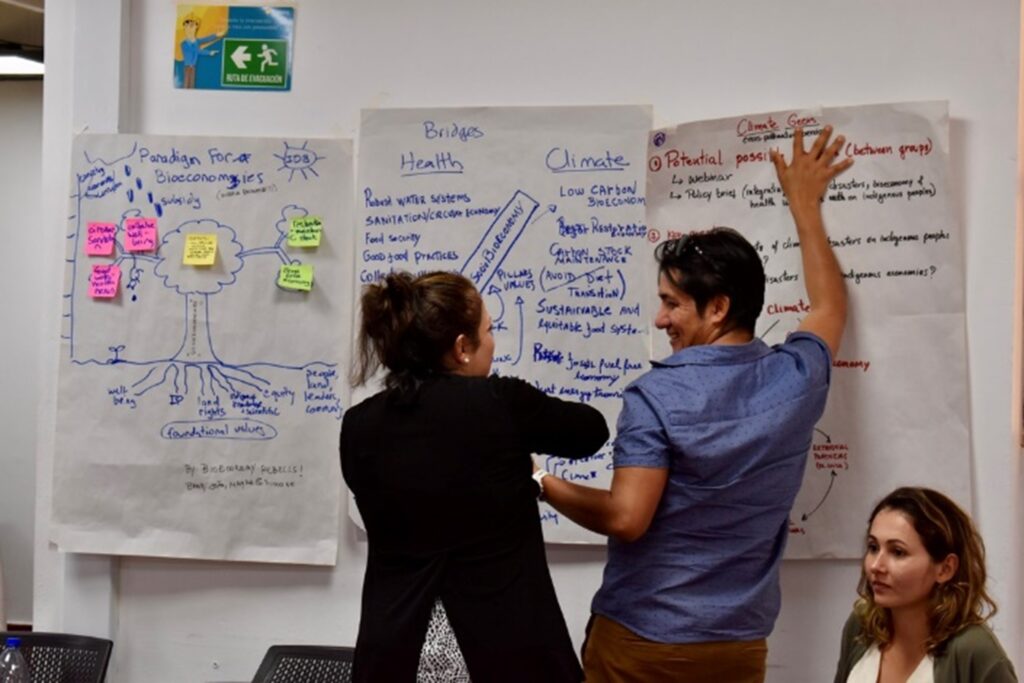
The scholars also worked in groups to begin developing action-oriented policy briefs in Fulbright Amazonia’s thematic areas. Each group will eventually present their policy suggestions in Washington, D.C. at the conclusion of the program.
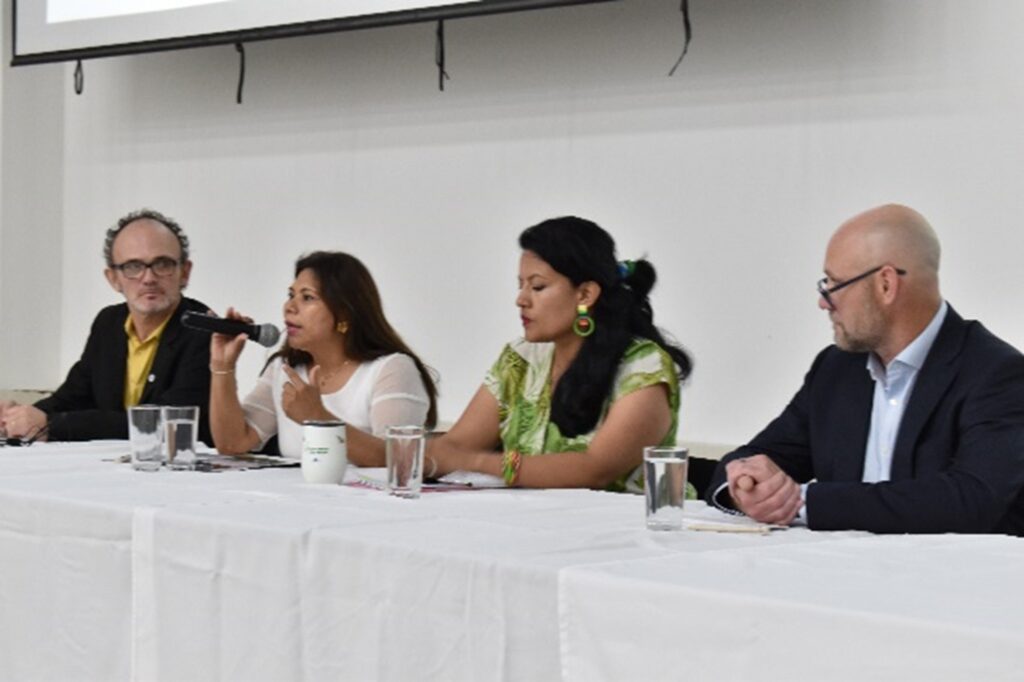
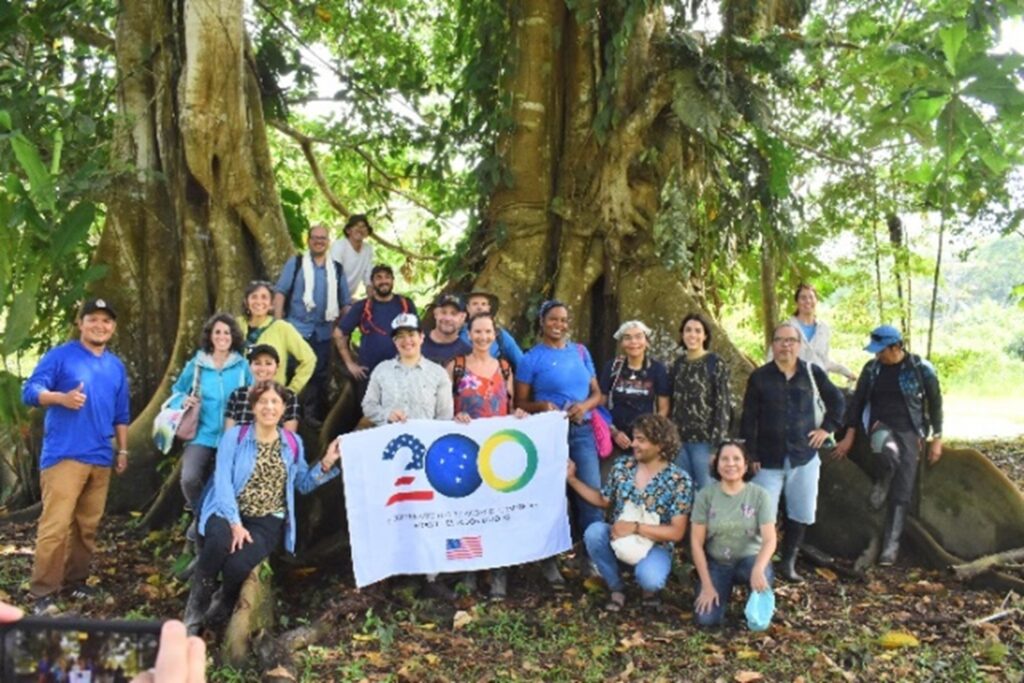
Highlights of the event included keynote remarks and guidance from experts from Colombia and Brazil. Jenny Paola Gallo Santos from Colombia’s Ministry of Environment and Sustainable Development, who coordinates a comprehensive deforestation containment plan in her role at the ministry, spoke about her country’s commitment to conservation. Fanny Kuiru Castro, who leads the Coordinating Body of Indigenous Organizations of the Amazon Basin (COICA), spoke about the role of Indigenous peoples in environmental policy. Castro is an expert in legal and political advice on issues related to public policy, Indigenous peoples, women’s rights, economic, social and cultural rights, and gender. She is the first woman to preside over COICA, which represents more than 500 Indigenous peoples from nine Amazonian countries. David Bargueño, Counselor for Environment, Science, Technology and Health affairs at the U.S. Embassy in Brazil and a career Foreign Service Officer with the U.S. Department of State, provided guidance and facilitated the scholars’ discussions related to their policy briefs.
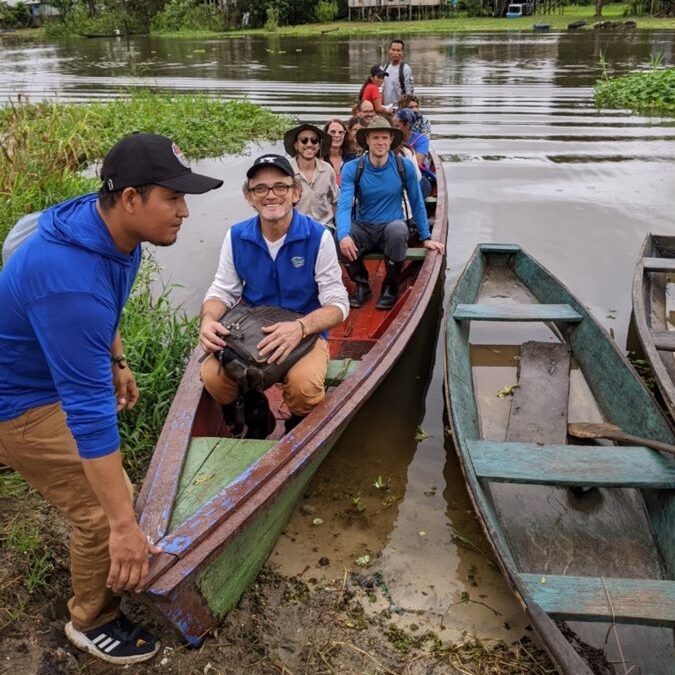
A visit to Yahuarcaca Lakes provided an opportunity to see the challenges facing the community first-hand. Scholars learned about sustainable fishing practices and the formation of a local fishing cooperative. They discussed community-based freshwater conservation management and restoration of the forests with local experts.
These discussions and site visits were particularly helpful for the Fulbright Amazonia Bioeconomy and Sustainable Development research group. Within the group, the scholars are exploring the impact of biodiversity-based value chains on the well-being of Indigenous people and local communities, the contribution of wild-managed fish as an alternative to beef in reducing greenhouse gas (GHG) emissions, and working to support Indigenous peoples’ sustainable livelihoods and human rights.
Fulbright Amazonia scholar Bradley Olsen, a chemical engineering professor at MIT, is working to develop teaching and research strategies that promote the development of sustainable bioeconomies. As part of his Fulbright project, he brought MIT students to Brazil to help teach students in Manaus a course on designing sustainable polymer systems, to advance the goal of providing economic development that is compatible with preserving standing forests.
The Human and Environmental Health and Security group scholars are exploring issues related to the impact of environmental challenges on public health, while other scholars are investigating issues such as mitigating forest fires and deforestation and the impact of anthropogenic and environmental factors on Indigenous peoples’ livelihoods as well as their food resilience strategies.
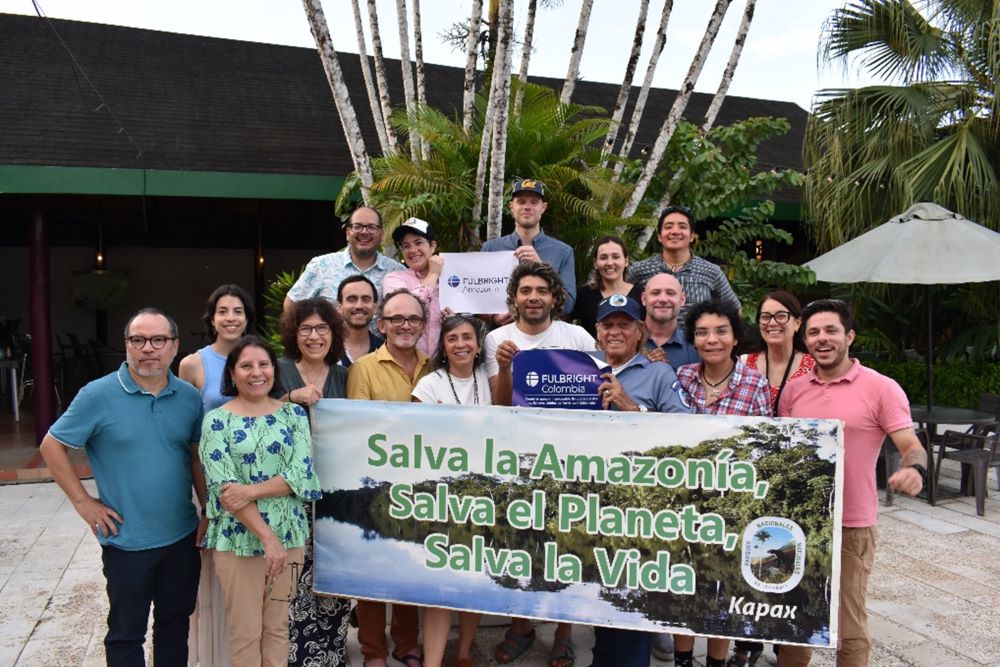
The group had a special visit from Alberto Lesmes Rojas, a local living legend and cultural icon also known as “Kapax” (pictured third from right in the bottom row of the group photo above, wearing blue hat). Kapax is known throughout Colombia for his efforts to draw attention to the pollution of the river, including swimming the 1,000 mile length of a major Amazon tributary river in the 1970s.
After the meeting, some of the scholars stayed in the region and volunteered their time to teach workshops for Colombian and Brazilian students on Fulbright Amazonia’s key research themes and advancing international educational exchange.
The event was hosted by the Fulbright Colombia Commission, in collaboration with the global Fulbright Program and with support from the U.S. government and the Fulbright Commission in Brazil.